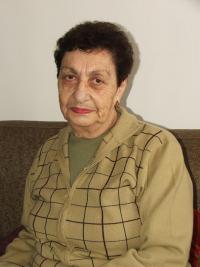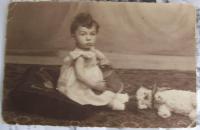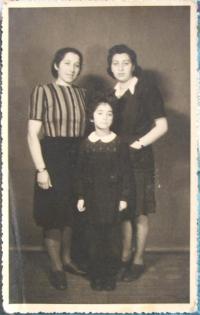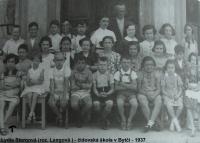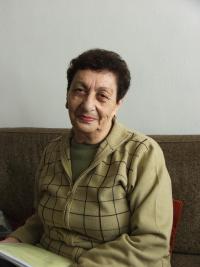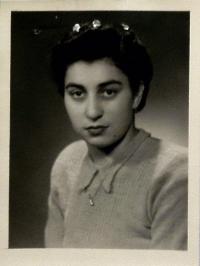Me, my mother and my sister spent two years and a half in the Sered camp and I spent another two years in prison, so I’ve seen quite a lot.

Download image
Lydia Sternová, née Langová, was born on May 6, 1929, in Slovakia. She had lived in Israel since 1965. She suffered a lot of hardship just like the majority of the immigrants to Israel. She went through many camps and prisons. The detention camp of the so-called “Slovak state” or jails of Communist Czechoslovakia, where she landed in the fifties (1954) was for helping people emigrate from Czechoslovakia. She spent two and a half years in a detention camp in Sered with her mother and sister were they were imprisoned for another two and a half years. Her whole family, except for her mother and sister, perished in the war. Her father was taken to the Majdanek concentration camp with one of the first transports and shot there. After the war, she got married to Julián Šorban and they organized escapes for Czechoslovak Jews to Israel. The whole organization was, however, uncovered in 1953 and the Israeli ambassador was expelled from Czechoslovakia. Lydia was sentenced to four years. She actually spent two and a half years in prison and her son was taken away from her and placed in a children’s asylum. It took several months before her mother was allowed to take care of him. After her release from prison, she got divorced and married again. Today, Lydia Sternová lives in the city of Nes Ciona in the south of the Tel Aviv agglomeration, where she moved years ago to be close to her younger son and his family.
